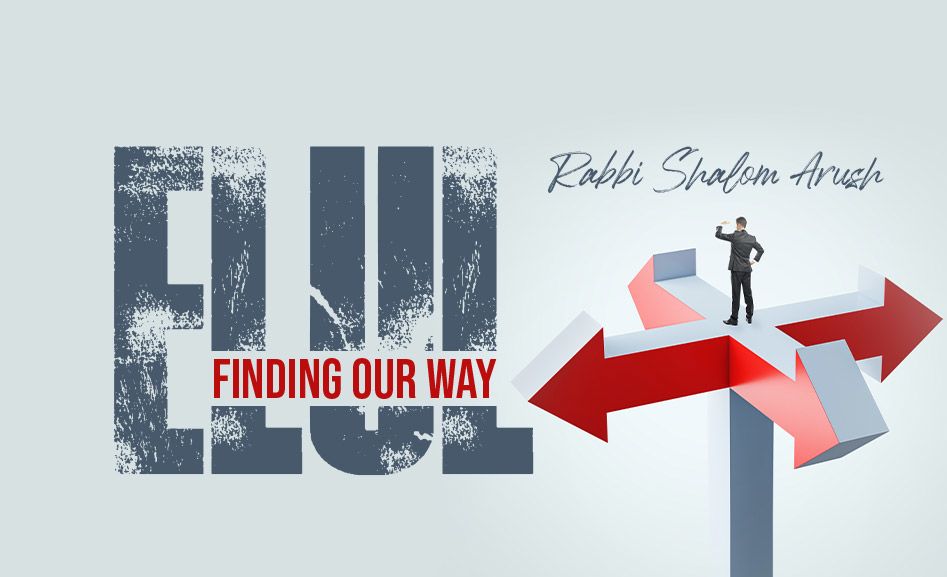
Takeoff Power
During a lecture in Ashdod for newly observant Israelis, I asked the participants to tell me the hardest things they ever did…

During a lecture in Ashdod for newly observant Israelis, I asked the participants to tell me the hardest things they ever did. The answers were varied, but they had an amazing common denominator. Look at this sample of some of the answers and think about the pattern:
1. Man – the first day I ever went out in public wearing a kippah
2. Woman – the first day I ever covered my hair in public
3. Man – basic training in the IDF (Israeli Army)
4. Woman – her first year in university
5. Man – my first Shabbat without a cigarette
6. Woman – my first Shabbat without getting in my car
7. Man and Woman (multiple answers) – our first year of marriage
8. Woman – my first childbirth
9. Man – the day he decided to quit substance abuse
10. Woman – the first day she wore a skirt (until recently, she didn’t have a single one in her closet).
Apparently, there are some weird responses here. The young man who answered #3 had been in the Second Lebanon War and in one of the Gaza Wars, both messy and scary. I asked him how the difficulty of basic training was worse than the wars or the advanced infantry training he had received. It’s a known fact in the IDF that each course as one moves up the ranks just gets tougher. Man #3 answered that the  change from the freedom of a teenager to the discipline of a combat soldier was jolting for him. At that point, many of the other participants – both men and women who were IDF veterans – agreed with him.
change from the freedom of a teenager to the discipline of a combat soldier was jolting for him. At that point, many of the other participants – both men and women who were IDF veterans – agreed with him.
The common denominator of all the above responses is that they are all connected with new beginnings.
New beginnings are tough – period. Rebbe Nachman says so. “New beginnings are tough, for one is called upon to go from opposite to opposite” (Likutei Moharan I:62). But, the beginning is the key to growth. The initial impetus sets the tone.
The physical world teaches us much about the spiritual world, for the same principles apply. Newton’s laws of motion teach us that it takes far greater power to initially move a static object than it does to maintain the acceleration of an object already in movement. For example, on an inner-city domestic flight, an airliner’s takeoff and initial climb will utilize as much as 25% of the fuel expended during the entire flight. The takeoff and initial climb require much greater power than flying at cruising altitude does.
Look at the spiritual takeoff of a newly observant individual or even a person who is committing to strengthen his or her observance.
The new BT (baal teshuva) that wears a kippah to work for the first time thinks that it is burning a hole in his skull. It takes guts to walk out of his front door for the first time wearing that kippah.
The attractive young lady with the flowing Farah Fawcett curls that everyone on the Tel Aviv University campus used to ooh and aw about now shows up to the office in a silk scarf (or modest wig) and a skirt that’s wider and longer than she ever wore. What’s more, her elbows are covered and her blouse is buttoned up to her collarbone. This young lady deserves the Congressional Medal of Honor for that first day in the line of fire of all the looks, comments, and questions she gets. What courage – and she didn’t back down!
A man in this day and age who decides to guard his eyes will join the above-mentioned Ms. Farah Fawcett Feinberg in the Honor Guard. The first day of guarding your eyes could probably qualify for the most difficult test of all: the guy who is guarding his eyes for the very first time thinks that the whole world is gawking at him, making fun of him, and calling him a prude.
No, the new beginning is not easy.
But guess what – that’s what the Shovevim Weeks are all about.
This week begins the period of “Shovevim”, the 6-week period named as an acronym for the six Torah portions from the weeks of Shmot, Va’era, Bo, Beshalach, Yitro and Mishpatim. The Shovevim period is a most conducive time for enhancing personal holiness. Not only does Hashem give us extra assistance in getting close to Him, He pays premium.
The secret of Shovevim is that we simply have to express our desire and take the first step in moving the spiritually inanimate object. Hashem does all the rest, for He promises, “Open a pin-hole size opening for me, and I’ll open for you an opening big enough for a 737.” It isn’t easy, but it sure is worth it.






